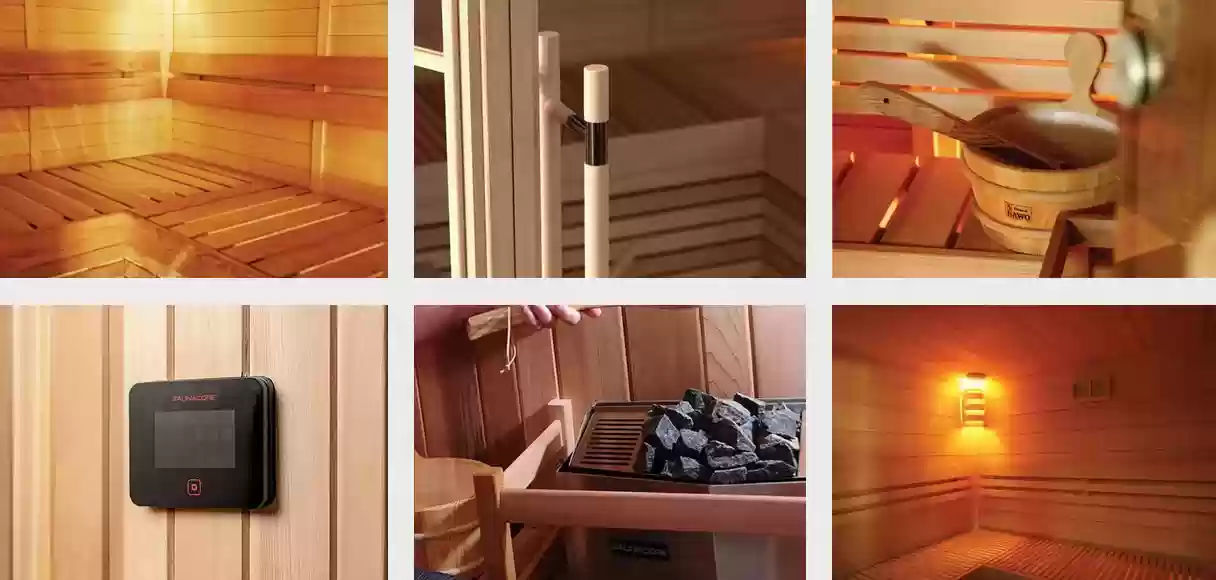A sauna is a place for wellness, renewal, and peace of mind, not just relaxation. However, the sauna material used to make it is what really makes it great, not just the design or temperature. Everything from comfort and longevity to heat distribution and aroma can be influenced by the type of sauna material used. Knowing how to select the best materials is crucial for obtaining comfort and durability, whether you're building a home sauna from scratch or renovating an old one.
The Value of Selecting the Proper Sauna Material
Extreme temperatures, high humidity, and continuous exposure to moisture are all necessary for sauna operation. These conditions must not cause the materials to warp, crack, or release toxic substances. Your sauna sessions' overall atmosphere, aroma, and tactile experience are also influenced by the wood or finish you select.
By using premium, heat-resistant materials, the sauna's structural integrity and long-term comfort are guaranteed. Although inexpensive or inappropriate materials may appear nice at first, they can quickly deteriorate in extreme heat, compromising both performance and safety.

Common Sauna Wood Types
Each type of wood has unique benefits. The most popular materials for saunas and the reasons they are unique are as follows:
Western Red Cedar
Western Red Cedar, one of the most widely used sauna woods, is prized for its lovely reddish hue and organic scent. It is ideal for both conventional and infrared saunas because of its exceptional resistance to moisture, deterioration, and warping. Additionally, cedar remains comparatively cool to the touch, which improves comfort over extended periods.
Hemlock
Another favorite is hemlock because of its light color and smooth texture, which give saunas a sleek, contemporary appearance. It is long-lasting and non-resinous, which means that when heated, it doesn't release any sticky or odorous compounds. Because of this, it's a great choice for people who are sensitive to strong smells.
Nordic Spruce
Nordic Spruce is valued for its superior insulating qualities and rustic look. It is frequently used in traditional Finnish saunas because of its tight grain structure, which guarantees stability at high temperatures. Spruce creates a light, welcoming atmosphere and retains its beauty for years with the right maintenance.
Aspen
Aspen is the best choice if you're searching for something hypoallergenic. It is splinter-free, smooth, and cool even under intense heat. Aspen is a great option for contemporary wellness areas because of its light color, which gives the sauna's interior a soothing brightness.
Extra Resources and Things to Think About
Although wood serves as the foundation, other materials are also very important. Because stainless steel resists corrosion and can withstand high temperatures, it is frequently used for sauna heaters and accessories. Another common option for windows or doors is tempered glass, which preserves heat efficiency while adding a hint of luxury.
Always make sure the materials you choose are non-toxic, sourced responsibly, and finished with heat-safe methods. Steer clear of artificial varnishes or coatings that may emit toxic fumes when heated.
It is wise to contact Northern Lights Cedar Barrel Saunas to place order for the best sauna material.


- Indoor Sauna Kits
- Indoor Sauna Kits
- Barrel Sauna Kits
- Barrel Saunas
- Barrel Saunas
- Cedar Barrel Saunas
- DIY sauna kits
- DIY Sauna Kits
- DIY Sauna Kits
- home sauna
- Home Sauna
- Home Saunas
- Home Saunas
- Indoor saunas
- Indoor saunas
- Outdoor Barrel Sauna
- Outdoor Barrel Sauna
- outdoor sauna
- Outdoor Saunas
- Sauna Cleaner
- sauna heaters
- Sauna Heaters
- Sauna Material
- Sauna Material
- sauna room